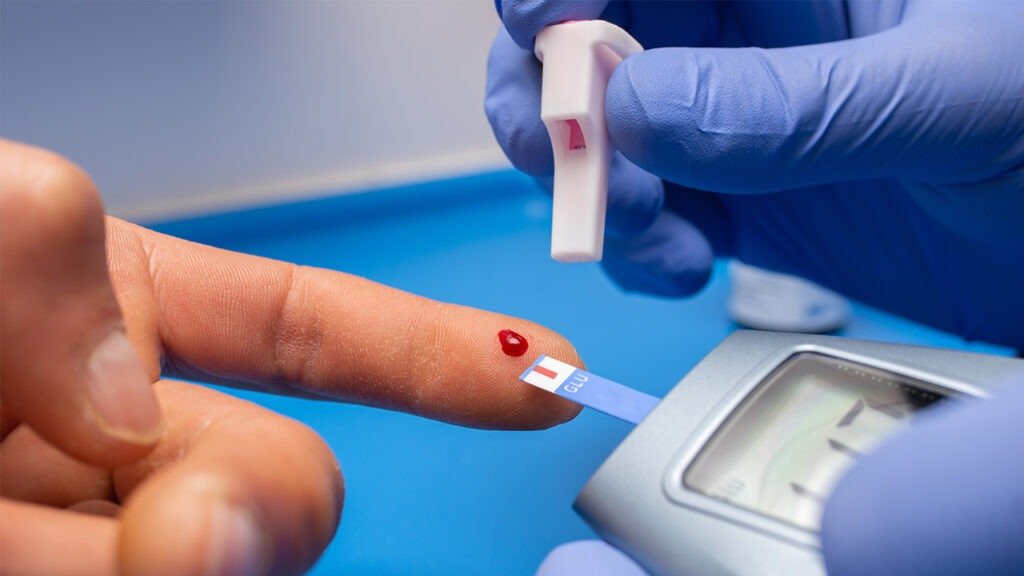Managing Diabetes Naturally: Exploring the Benefits of Ashwagandha
Withania somnifera, usually referred to as ashwagandha or Indian ginseng, is a widely used plant in conventional Ayurvedic treatment. It has been used for ages to enhance general health and treat a number of medical ailments. The possible advantages of ashwagandha for those with diabetes have drawn more attention in recent years. The association between ashwagandha and diabetes will be examined in this article, along with any potential impacts, advantages, and considerations.
Introduction
High blood sugar levels are a defining feature of diabetes, a chronic illness. It affects millions of people globally and, if not effectively treated, can cause a variety of difficulties. While mainstream diabetic treatments are available, many people are turning for complementary and alternative therapies to assist them improve their overall health and well-being. One such plant that has gained interest is ashwagandha due to its potential role in reducing the symptoms of diabetes and promoting improved blood sugar control.
Understanding Ashwagandha

Ashwagandha has antioxidant properties as well. Chemicals called antioxidants help shield the body from the damaging oxidative stress brought on by free radicals. Cell damage from oxidative stress can contribute to the development of chronic illnesses. The antioxidant properties of ashwagandha aid in the neutralization of free radicals and the reduction of oxidative damage, therefore maintaining cellular health.
Alkaloids, steroidal lactones (withanolides), and flavonoids are only a few of the bioactive substances found in ashwagandha. It is thought that these ingredients help explain why it has therapeutic qualities. The herb’s capacity to strengthen the neurological system, improve cognitive function, increase energy, and foster general vitality is well established.
Diabetes: A Brief Overview
The body’s ability to control blood sugar (glucose) levels is impacted by diabetes, a metabolic illness. Diabetes comes in two main types: type 1 and type 2.. Insulin, a hormone that aids in controlling blood sugar, is not produced by the body in sufficient amounts in type 1 diabetes. The body either produces insufficient insulin or develops an immunity to its effects in type 2 diabetes. Elevated blood sugar levels that are caused by both types of diabetes might cause consequences if they are not treated effectively.
The Potential Benefits of Ashwagandha for Diabetes
Ashwagandha, a herb with a long history of use in conventional Ayurvedic medicine, has received attention for its potential benefits in treating diabetic symptoms and promoting better blood sugar management. While scientific research is ongoing, several potential benefits of ashwagandha for diabetes have been suggested:
Blood Sugar Control

Its ability to assist in controlling blood sugar levels is one of the main areas of interest surrounding ashwagandha and diabetes. Ashwagandha may be able to reduce blood sugar levels due to hypoglycemic effects, according to some research. The benefit of this may extend to diabetics who have difficulty maintaining optimal blood sugar control. To completely understand the working processes and the overall impact on blood sugar management, more research is necessary.
Insulin Sensitivity

Insulin sensitivity is the body’s ability to effectively utilise insulin to control blood sugar levels. Ashwagandha may enhance insulin sensitivity, which may enhance the body’s reaction to insulin and enable improved blood sugar control, according to study. Ashwagandha may improve insulin sensitivity, enabling diabetics to better manage their condition. More study is need to confirm and comprehend this potential advantage, though.
Antioxidant Activity

Strong antioxidant capabilities of ashwagandha aid in the elimination of free radicals and the reduction of oxidative stress. Ashwagandha may have preventive effects against diabetic complications by lowering oxidative stress. But more study is required to examine the precise effects of ashwagandha on oxidative stress in relation to diabetes.
Weight Management

An important part of controlling diabetes is keeping a healthy weight. Ashwagandha may help with weight loss efforts, according to some research. Body weight, BMI, and waist circumference can all be lowered, which is significant for diabetes management. To determine the degree of ashwagandha’s effect on weight management in people with diabetes, more research is required.
Stress Reduction

Stress can negatively affect blood sugar management in diabetics. The adaptogenic properties of ashwagandha are widely known for improving the body’s capacity to handle stress. By reducing stress, ashwagandha may indirectly help to improve blood sugar regulation. It may also improve sleep quality, which is important for treating diabetes and maintaining general health.
Lipid Profile Improvement

Diabetes patients frequently have lipid abnormalities, including high cholesterol and triglyceride levels. According to certain research, ashwagandha may help improve lipid profiles by lowering total cholesterol, LDL cholesterol, and triglyceride levels. Maintaining appropriate lipid levels is critical for lowering the risk of diabetic cardiovascular problems.
Anti-Inflammatory Effects

Diabetes, its consequences, and chronic inflammation are all influenced by chronic inflammation. Researchers have discovered that ashwagandha contains anti-inflammatory effects, which may aid diabetics with inflammation. Ashwagandha might improve diabetes management and offer extra advantages for general health by lowering inflammation.
Nerve Function and Neuropathy

Diabetes frequently results in diabetic neuropathy, a form of nerve damage. Ashwagandha has been investigated for its potential to protect neurons from damage and to enhance neuronal function. According to some research, ashwagandha may lessen neuropathic pain and enhance nerve regeneration, which may be helpful for diabetics who experience neuropathy symptoms.
Blood Pressure Regulation

High blood pressure is frequently present with diabetes, which increases the risk of cardiovascular issues. According to research, ashwagandha may help lower blood pressure because it contains antihypertensive characteristics. Ashwagandha may help with the overall treatment of diabetes and lessen the likelihood of associated problems by promoting good blood pressure regulation.
Antimicrobial and Immune-Boosting Properties

Diabetes patients may be more susceptible to infections as a result of reduced immune system. Traditional uses of ashwagandha include its ability to strengthen the immune system and its ability to fight off specific diseases with antibacterial action. While additional research is required, these characteristics imply that ashwagandha may support a healthy immune system and shield those with diabetes from infections.
Oxidative Stress Management

Oxidative stress, which develops when free radicals and antioxidants are in an unbalanced ratio, is associated with diabetes and its effects. Due to ashwagandha’s antioxidant capabilities, oxidative stress and its harmful effects on the body may be lessened. Ashwagandha may offer further defense against diabetes-related issues like renal damage and cardiovascular disease by combating oxidative stress.
Mental Well-being and Quality of Life

Diabetes can significantly impact both mental health and overall quality of life. For its ability to lessen the signs of stress, anxiety, and depression, ashwagandha has been studied. By boosting feelings of wellbeing and enhancing mental health, ashwagandha may contribute to a better quality of life for those with diabetes.
Scientific Evidence and Research
Clinical Studies on Ashwagandha and Diabetes
Several clinical studies have explored the effects of ashwagandha on diabetes management. When compared to a placebo group, ashwagandha supplementation dramatically reduced fasting blood sugar levels and improved lipid profiles in type 2 diabetes patients in a randomized controlled experiment. Other studies have reported similar findings, suggesting the potential of ashwagandha as an adjunct therapy for diabetes management.
Mechanisms of Action
The mechanisms through which ashwagandha exerts its effects on diabetes are still being investigated. According to some research, ashwagandha may improve insulin secretion from pancreatic beta cells, glucose uptake by peripheral tissues, and glucose metabolism. Furthermore, its antioxidant capabilities may aid in the reduction of oxidative stress linked with diabetes.
How to Use Ashwagandha for Diabetes
Dosage and Preparation
The optimum ashwagandha dosage for diabetes may differ depending on individual demands and health circumstances. Before beginning any new supplement regimen, it is critical to contact with a healthcare expert. Ashwagandha is available as capsules, powders, and liquid extracts, among other forms. It is critical to follow the suggested dosage directions on the product label for safe and efficient use.
Safety and Precautions
While ashwagandha is generally considered safe for most people when used as directed, it is important to exercise caution and consider certain precautions. Pregnant or breastfeeding women, individuals with autoimmune conditions, and those taking medications should consult with a healthcare professional before using ashwagandha. Additionally, it is advisable to start with lower doses and gradually increase as tolerated.
Other Considerations
Lifestyle Factors
Keep in mind that ashwagandha shouldn’t be considered a stand-alone treatment for diabetes. Effective diabetes control depends heavily on lifestyle choices such a balanced diet, frequent exercise, stress management, and access to quality medical care. An all-encompassing holistic strategy for managing diabetes can include ashwagandha.
Consultation with Healthcare Provider
Before incorporating ashwagandha into your diabetes management plan, it is crucial to consult with your healthcare provider. They can provide personalized guidance, assess potential drug interactions, and monitor your progress. Your healthcare provider will help ensure that ashwagandha is safe and appropriate for your specific health needs.
Conclusion
Ashwagandha shows promise as a potential natural remedy for managing diabetes symptoms and promoting better blood sugar control. While scientific research suggests its potential benefits, it is important to remember that ashwagandha should not replace conventional treatments or medical advice.
FAQs (Frequently Asked Questions)
Q 1: Can ashwagandha cure diabetes?
Ans. Ashwagandha cannot cure diabetes. However, it may help manage diabetes symptoms and improve blood sugar control when used as part of an overall diabetes management plan.
Q 2: Can ashwagandha be taken alongside diabetes medications?
Ans. It is important to consult with a healthcare provider before combining ashwagandha with diabetes medications. Ashwagandha may interact with certain medications, and your healthcare provider can provide guidance based on your specific situation.





